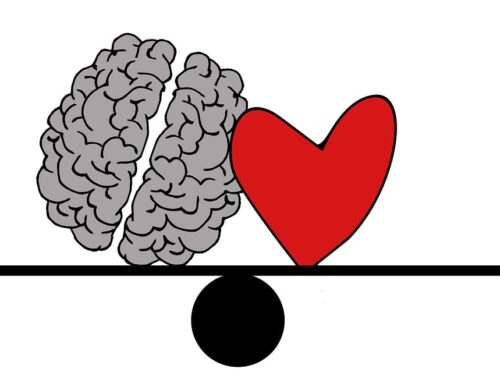Navigating the Hidden Paths of Self-Sabotage
I have been looking into some of the often-overlooked world of self-sabotage. I’ve seen the subtle ways it weaves into lives, sometimes unnoticed but always leaving a mark. It’s a serious issue, but we can navigate its intricate paths and find solutions.
The Unseen Dimensions
One surprising thing I discovered is that even our brain’s biology can nudge us towards self-sabotage. Imbalances in neurotransmitters might amplify our anxiety, leading us to avoid opportunities and unconsciously set ourselves up for failure. And also the cultural and societal influences that subtly shape our actions. In cultures that emphasise extreme humility, individuals might unknowingly undermine their success, feeling unworthy of achievements or opportunities.
Attachment Styles and Relationships
Our early relationships and attachment styles play a significant role, too. If you find yourself pushing people away or avoiding intimacy, it might be a sign of self-sabotaging behaviours rooted in fear of abandonment or rejection. Recognising and addressing these patterns is crucial to foster healthy, fulfilling relationships.
Secondary Gains and Environment
Have you ever heard of secondary gains? It’s when self-sabotage provides an unexpected benefit, like reinforcing an underdog identity, despite its obvious drawbacks. For example, habitually arriving late to important events like job interviews and meetings can lead to lost opportunities and strained relationships. This behaviour is a form of self-sabotage but carries a secondary gain. Despite the apparent drawbacks, our consistent tardiness reinforces our belief that the world is against us, solidifying our underdog identity. This perspective allows us to avoid taking responsibility for our actions, believing we are destined to fail regardless of our efforts. This belief, while comforting in a way, further entrenches your self-sabotaging behaviour, making it more difficult for us to break the cycle and make positive changes in our lives. Also, take into account the power of your environment. A toxic workspace or unsupportive relationships can unknowingly encourage self-sabotage, adding to self-deprecating beliefs, making it essential to surround ourselves with positivity and support.
Chronic Illnesses and Hormonal Imbalances
Chronic illnesses or hormonal imbalances can inadvertently foster self-sabotaging behaviours. For instance, those of us with chronic illnesses may experience frustration, sadness, or anger about our health condition. These emotions can lead to a mindset of hopelessness and resignation, causing us to engage in behaviours that exacerbate our condition rather than alleviate it. We might neglect medication, indulge in unhealthy eating, or avoid exercise, harming our health and well-being. Hormonal imbalances, such as thyroid issues or hormonal shifts during the menstrual cycle, can also impact mood and judgment, leading to impulsive decisions and self-destructive actions. Addressing these health issues is paramount. Regular medical check-ups, adherence to prescribed medication, and lifestyle adjustments can help manage these conditions, reducing the likelihood of self-sabotage.
The Digital Age Dilemma
In today’s digital era, social media platforms bombard us with images of others leading seemingly perfect lives. This constant exposure can intensify feelings of inadequacy, low self-esteem, and self-doubt. We may begin to devalue our own achievements, compare ourselves unfavourably to others, and set unrealistic expectations. This can lead to a cycle of self-sabotage where we can undermine our own efforts and potential in a bid to emulate the unattainable perfection we see online. We might avoid opportunities for fear of failure, procrastinate on goals, or engage in harmful behaviours in an attempt to fit a certain mold.
Existential Questions
Existential questions about life’s meaning, purpose, and our place in the universe often surface during moments of reflection, transition, or turmoil. These profound questions can be unsettling, leading to feelings of uncertainty, anxiety, and doubt. When individuals grapple with existential concerns, it can sometimes create a sense of emptiness or futility, leading us to question the value of our actions and goals. This existential unrest can manifest as self-sabotage.
For example, someone questioning the purpose of their career might subconsciously undermine their professional progress, believing that their job lacks true meaning or impact. They might procrastinate on essential tasks, neglect responsibilities, or avoid opportunities for advancement, thus sabotaging their career growth. This behaviour is a manifestation of their existential uncertainty, a way of expressing their internal conflict and search for meaning.
Let’s Take Action!
Now that we’ve explored the hidden dimensions of self-sabotage, it’s time to take action. Start with self-reflection. Journaling can be a fantastic way to uncover patterns of self-sabotage in your life. Challenge your negative beliefs and question their origin. Are they rooted in past experiences or fears?
Also, engage in activities that boost your self-esteem and confidence, and remember to surround yourself with supportive friends and family. You might consider therapy to help navigate these complex issues if you can’t get clarity into your pattern of self-sabotage. Understanding and addressing self-sabotage is a journey, but it’s one worth taking. Remember, you’re not alone in this. With awareness, support, and the right tools, you can break the cycle of self-sabotage, paving the way for a more fulfilled and empowered life.
I have been looking into some of the often-overlooked world of self-sabotage. I’ve seen the subtle ways it weaves into lives, sometimes unnoticed but always leaving a mark. It’s a serious issue, but we can navigate its intricate paths and find solutions.
The Unseen Dimensions
One surprising thing I discovered is that even our brain’s biology can nudge us towards self-sabotage. Imbalances in neurotransmitters might amplify our anxiety, leading us to avoid opportunities and unconsciously set ourselves up for failure. And also the cultural and societal influences that subtly shape our actions. In cultures that emphasise extreme humility, individuals might unknowingly undermine their success, feeling unworthy of achievements or opportunities.
Attachment Styles and Relationships
Our early relationships and attachment styles play a significant role, too. If you find yourself pushing people away or avoiding intimacy, it might be a sign of self-sabotaging behaviours rooted in fear of abandonment or rejection. Recognising and addressing these patterns is crucial to foster healthy, fulfilling relationships.
Secondary Gains and Environment
Have you ever heard of secondary gains? It’s when self-sabotage provides an unexpected benefit, like reinforcing an underdog identity, despite its obvious drawbacks. For example, habitually arriving late to important events like job interviews and meetings can lead to lost opportunities and strained relationships. This behaviour is a form of self-sabotage but carries a secondary gain. Despite the apparent drawbacks, our consistent tardiness reinforces our belief that the world is against us, solidifying our underdog identity. This perspective allows us to avoid taking responsibility for our actions, believing we are destined to fail regardless of our efforts. This belief, while comforting in a way, further entrenches your self-sabotaging behaviour, making it more difficult for us to break the cycle and make positive changes in our lives. Also, take into account the power of your environment. A toxic workspace or unsupportive relationships can unknowingly encourage self-sabotage, adding to self-deprecating beliefs, making it essential to surround ourselves with positivity and support.
Chronic Illnesses and Hormonal Imbalances
Chronic illnesses or hormonal imbalances can inadvertently foster self-sabotaging behaviours. For instance, those of us with chronic illnesses may experience frustration, sadness, or anger about our health condition. These emotions can lead to a mindset of hopelessness and resignation, causing us to engage in behaviours that exacerbate our condition rather than alleviate it. We might neglect medication, indulge in unhealthy eating, or avoid exercise, harming our health and well-being. Hormonal imbalances, such as thyroid issues or hormonal shifts during the menstrual cycle, can also impact mood and judgment, leading to impulsive decisions and self-destructive actions. Addressing these health issues is paramount. Regular medical check-ups, adherence to prescribed medication, and lifestyle adjustments can help manage these conditions, reducing the likelihood of self-sabotage.
The Digital Age Dilemma
In today’s digital era, social media platforms bombard us with images of others leading seemingly perfect lives. This constant exposure can intensify feelings of inadequacy, low self-esteem, and self-doubt. We may begin to devalue our own achievements, compare ourselves unfavourably to others, and set unrealistic expectations. This can lead to a cycle of self-sabotage where we can undermine our own efforts and potential in a bid to emulate the unattainable perfection we see online. We might avoid opportunities for fear of failure, procrastinate on goals, or engage in harmful behaviours in an attempt to fit a certain mold.
Existential Questions
Existential questions about life’s meaning, purpose, and our place in the universe often surface during moments of reflection, transition, or turmoil. These profound questions can be unsettling, leading to feelings of uncertainty, anxiety, and doubt. When individuals grapple with existential concerns, it can sometimes create a sense of emptiness or futility, leading us to question the value of our actions and goals. This existential unrest can manifest as self-sabotage.
For example, someone questioning the purpose of their career might subconsciously undermine their professional progress, believing that their job lacks true meaning or impact. They might procrastinate on essential tasks, neglect responsibilities, or avoid opportunities for advancement, thus sabotaging their career growth. This behaviour is a manifestation of their existential uncertainty, a way of expressing their internal conflict and search for meaning.
Let’s Take Action!
Now that we’ve explored the hidden dimensions of self-sabotage, it’s time to take action. Start with self-reflection. Journaling can be a fantastic way to uncover patterns of self-sabotage in your life. Challenge your negative beliefs and question their origin. Are they rooted in past experiences or fears?
Also, engage in activities that boost your self-esteem and confidence, and remember to surround yourself with supportive friends and family. You might consider therapy to help navigate these complex issues if you can’t get clarity into your pattern of self-sabotage. Understanding and addressing self-sabotage is a journey, but it’s one worth taking. Remember, you’re not alone in this. With awareness, support, and the right tools, you can break the cycle of self-sabotage, paving the way for a more fulfilled and empowered life.









